British Prime Minister Boris Johnson resigned. Days later, former Japanese Prime Minister Shinzo Abe was assassinated. A few days passed and both the President and Prime Minister of Sri Lanka, resigned and fled the country. Today, with their ruling governments in a state of turmoil, Estonian Prime Minister Kaja Kallas and Italian Prime Minister Mario Draghi have both tendered their resignations.
The collapse of each of these national leaders is not necessarily connected; however, the global political system is reverberating with tremors directly connected to the post-pandemic economic turmoil. It would be naïve not to see these governing issues as consequences. The legitimacy of the governing class is slipping; perhaps it would be fair to say, some have ‘lost’ their legitimacy altogether.
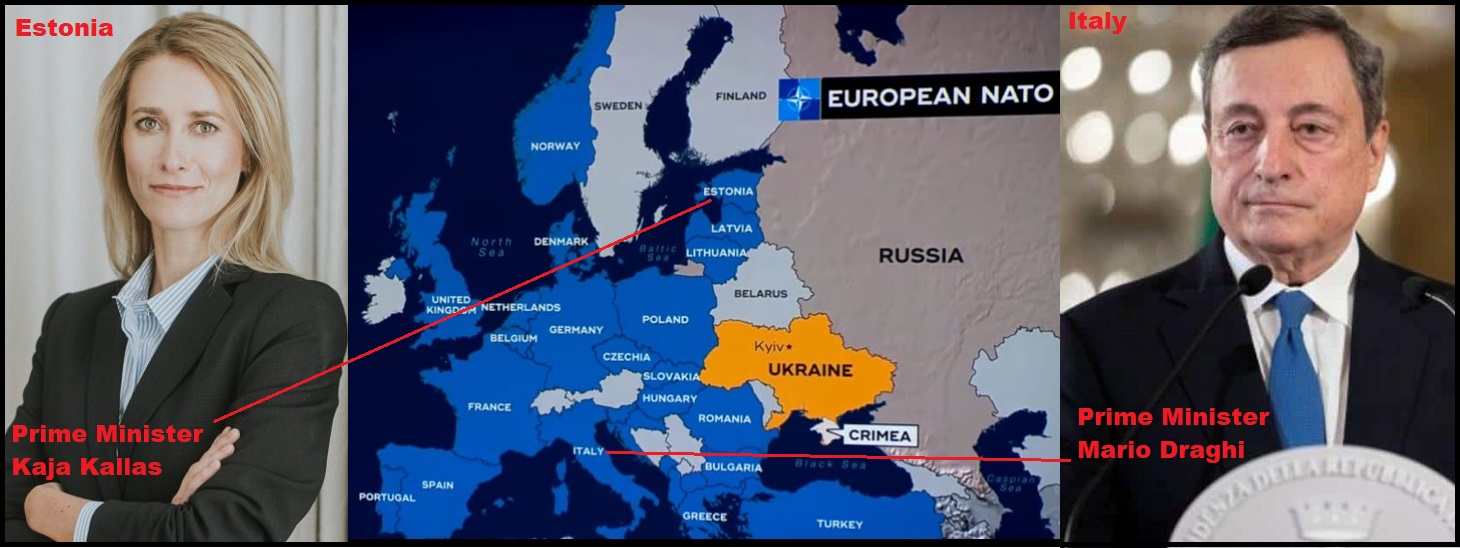
Estonia is part of the EU and a member of NATO:
HELSINKI — Estonia’s president on Thursday asked Prime Minister Kaja Kallas to form a new government after she tendered the resignation of her one-party minority Cabinet, ending a more than month-long political stalemate in the Baltic nation.
President Alar Karis said in a tweet after meeting with Kallas that “I signed the resignation request of Prime Minister @kajakallas but also asked her to form a new government which could start working quickly and deal with all important issues of Estonian life.”
Estonia’s government crisis culminated in early June as Kallas, leader of the ruling center-right Reform Party, kicked out the left-leaning Center Party from the two-party coalition. The parties had substantial differences over spending and welfare policies amid increasing Estonian household costs because of high inflation. (more)
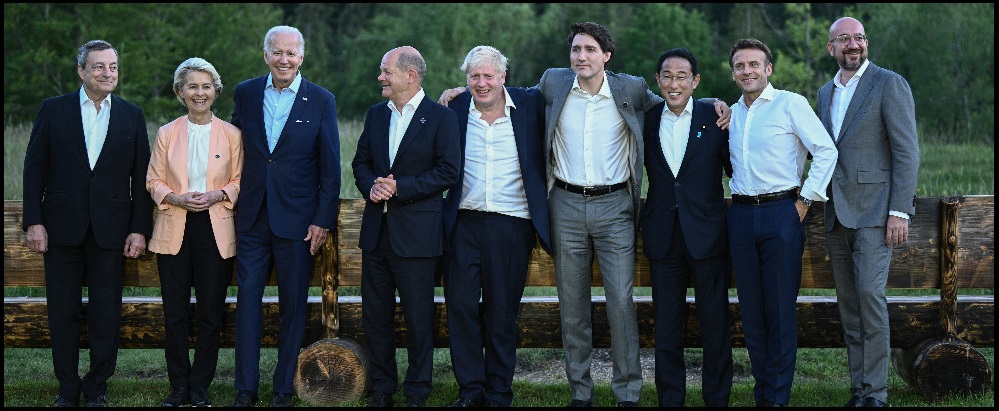
Italy is a member of the G7, a part of the EU and a member of NATO:
ROME — Italian Premier Mario Draghi offered to step down Thursday after a populist coalition partner refused to vote for a key bill in Parliament, but the nation’s president quickly rebuffed him, leaving one of Western Europe’s main leaders at the helm for now.
The rejection of the tendered resignation left in limbo the future of Draghi’s 17-month-old government, officially known as a national unity coalition, but with its survival sorely tested by increasingly sharp divergences within the coalition.
Draghi’s broad coalition government — which includes parties from the right, the left, the center and the populist 5-Star Movement — was designed to help Italy recover from the coronavirus pandemic. (read more)
The parliamentary coalitions are fracturing. New alliances are being formed. One recent example that stunned everyone in the EU was the far-right and far-left in the French parliament joining forces to defeat the coalition government of Emmanuel Macron as he tried, and failed, to extend emergency COVID rules.
FRANCE – It was the first bill in the new legislature, and the Assemblée Nationale has already embarrassed the government. On Tuesday night, the Assemblée rejected one of the key articles in the bill on Covid-19 aimed at extending certain measures for the fight against the pandemic.
During the debate, the coalition backing President Emmanuel Macron was outvoted several times by parts of the left-wing Nouvelle Union Populaire, Ecologique et Sociale (NUPES), the right-wing Les Républicains (LR) and the far-right Rassemblement National (RN). But the government, represented by Health Minister François Braun, adopted what was left of the bill at 1:45 am, which the help LR votes and Socialist abstentions. (more)
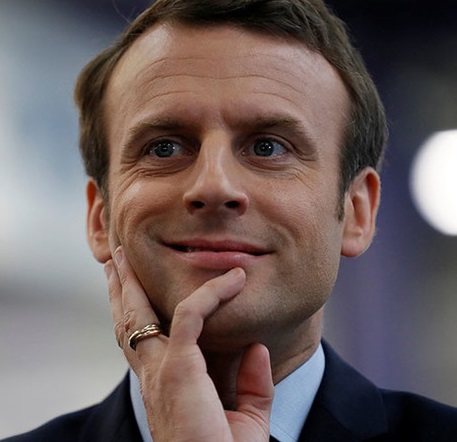 The COVID rules in France are set to expire on July 31st. The first parliamentary goal for President Macron was to extend the COVID emergency and keep his powers. However, the legislative effort was rejected by 219 votes to 195, destroying the goals of Macron. Both populist groups joined forces to defeat the Macron coalition.
The COVID rules in France are set to expire on July 31st. The first parliamentary goal for President Macron was to extend the COVID emergency and keep his powers. However, the legislative effort was rejected by 219 votes to 195, destroying the goals of Macron. Both populist groups joined forces to defeat the Macron coalition.
Yes, amid all of the economic damage created by western leaders and their Build Back Better efforts, the geopolitical world is having spasms as the rulers are being rejected by the ruled.
In the parliamentary systems, the voices of the angry people are rising up. Those shouts are entering the halls of government through the direct representatives closest to the people. The ruling coalitions are no longer able to hold together as the people demand change. That is the connective tissue behind these resignations and departures.
Western government leaders like Joe Biden, Justin Trudeau, Emmanuel Macron, Boris Johnson and Jacinda Ardern have the audacity to stand atop a two-year mountain of unilateral fiats, rules, regulations and mandates and then decry “autocracy” and threats to the “global order.” All of them have destroyed their own legitimacy by pretending to represent western democracy while carrying out two years of totalitarian power.
As the AP tried to spin it:
[…] “A poll conducted last year by The Associated Press-NORC Center for Public Affairs Research found that just 16% of Americans say democracy is working well or extremely well. Another 38% said it’s working only somewhat well.
Other surveys reveal how many people in the United States now doubt the media, politicians, science and even each other.
The distrust has gone so deep that even groups that seem ideologically aligned are questioning each others’ motives and intentions. (more)
We the citizens of the ‘western democracies’ are in an abusive relationship with our own governments’. The yellow vests in France, the MAGA movement in the U.S., the Australian labor unions, the Canadian Truckers and now the Dutch farmers are the precursor tremors for seismic political shifts.
They all followed the same instructions from the World Economic Forum, and western leaders have shown absolutely no desire to pull back and listen to the people. Quite the opposite is happening.
Collectively those same leaders are charging head strong into their Build Back Better agenda, regardless of what that does to the global economy. The collective sanctions placed against Russia are being felt as increased inflation by the citizens of Europe and the United States. Their “climate change’ agenda and energy policies are creating economic turmoil and now food insecurity
Inflation pressure has built up like a pressure cooker. People are growing increasingly desperate, and now the absence of food stability will change things.
The looming shortage of food could be the pressure point that fractures the tectonic political plates.
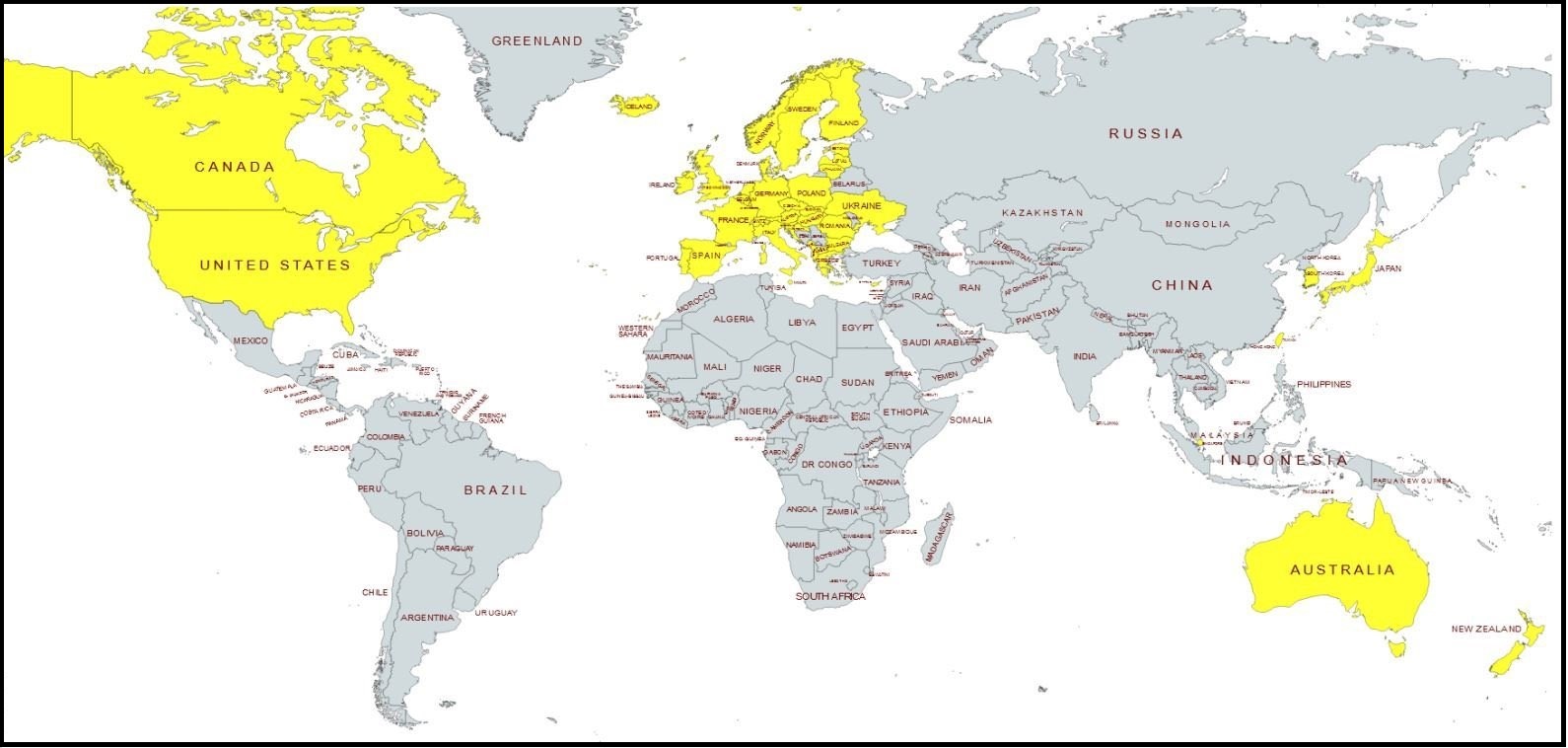
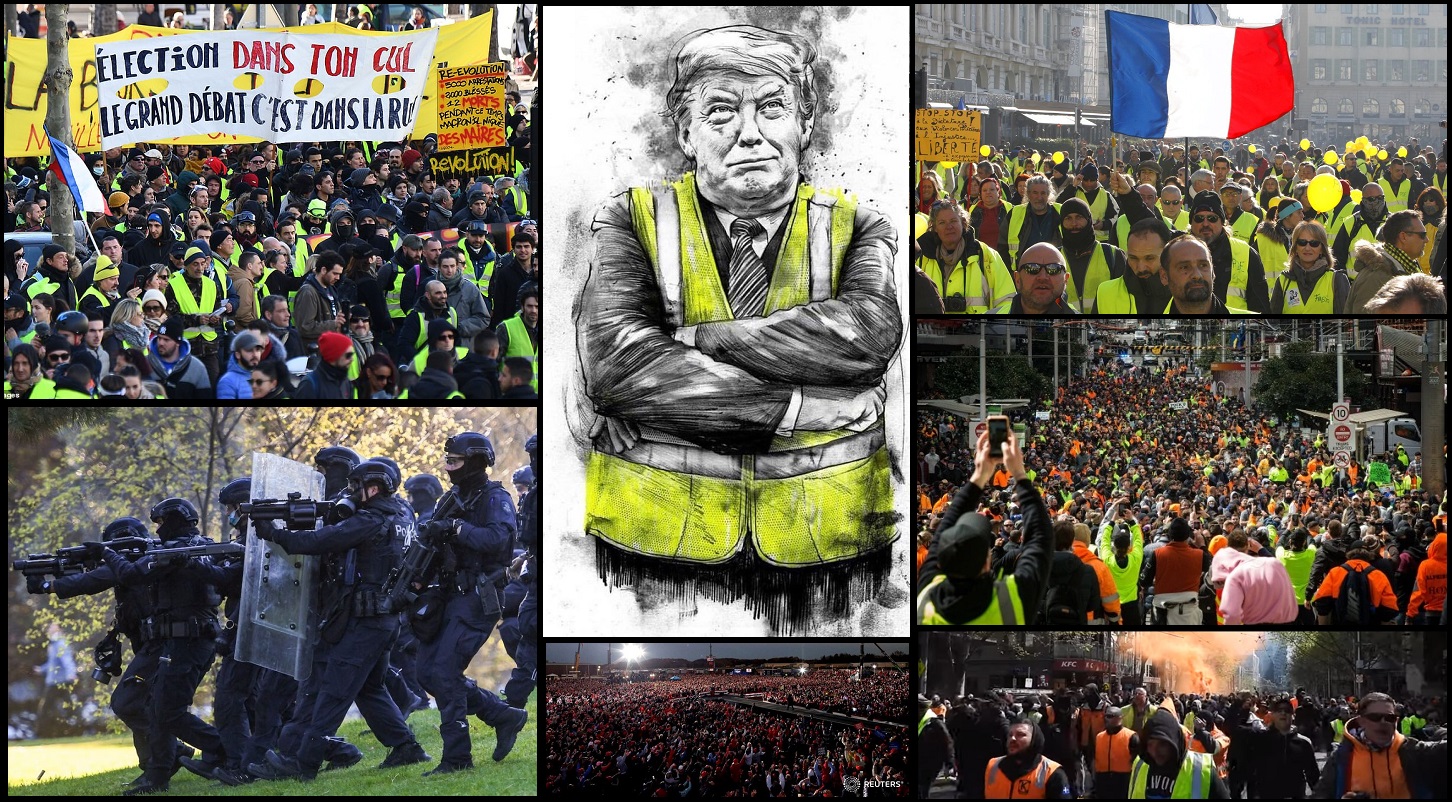
This is Europe. It happens here all the time that government leaders step down because they lose their mandate, when intricate multiparty coalitions propped up by supporting parties outside the government get hit by metal fatigue. A no confidence vote in a parliament that gains a majority against a Prime Minister, and he or she is gone. Then there is a reshuffle or a new election. Draghi’s government has been in power for 17 months. That’s an old government in Italy.
If anything the trend is stalemate and no new populism on the rise. Devastating green policies, selfinflicted energy crisis, covid overreach… whatever politician-induced calamities, don’t lead to any greater shifts in the political landscape. Everybody must “stand with Ukraine” now, so it’s dangerous to even say anything about the economy because it’s a war economy made to fight Putin.
Farmers blocking the roads is a fine old tradition in France, but not in The Netherlands and not so much in Germany either, so that is definitely a new trend to watch, only it’s not in the news.
Yes, European parliamentary system governments have always been unstable in themselves (not in their survival as institutions). I noticed this as a grade school pupil back in the 1950s, when, for instance, Italy had had more governments than years since the end of WWII. The tremors are less resounding in a country like England, which has historically had a less volatile population, but how long that will be the case is anyone’s guess.
A very significant difference is the single-member plurality system in the UK (misleadingly called “first past the post” as though elections are horse races). The Continental European parliaments are typically proportional-representation of one kind or another, on the widespread – but false – assumption that political parties somehow “represent” the electors or the popular will. That puts party leaders and backroom boys in the driver’s seat instead of the elected members themselves, with the result that the government is always formed from brokered coalitions. And, as you know, brokers make you exactly that ;o)
Even when you have minority parliaments in the UK (or other Westminster systems) there is a certain amount of common ground between the government and one or another of the opposition parties, allowing normal parliamentary business like budgets and supply to go ahead without toppling the government.
As a result, you get Bo Jo No Mo’ through a revolt in his own party, rather than through other factions withdrawing their support.
Must be nice when you can break things and just walk away.
Neither of these leaders are gone – they’ve received a mandate to stay and try again.
This is merely a show to appease the people. The anger gets redirected to the insulated presidents, off the prime ministers.
I suspect this means very draconian measures are coming to these nations.
Starvation. Then the $hit hits the fan.
Gates “when they’re starving they’ll eat anything!”
Soylent Green stuff coming . Hungry people have a different mind. GOD help us.
Desperation + Fear = Violence Every time
Especially when tyrants seed the nation with absolute savages from around the world with not a whit of allegiance to our culture and a demonstrated willingness to take others’ everythings.
They were promised utopia and when it evaporates they will be the first to disturb the peace of those of us trying to dig in and make it through.
Including Mr. gates, he would do well to KNOW this FACT.
Citizens are not relying on the news right now.
Standing with Ukraine is like standing with Hitler.
Seeing these events in the news, or knowing the EU history may not be necessary when people have to pay for rising energy costs, endure rolling blackouts and no heat or hot water, food shortages and the rising cost of food, inability to purchase essentials due to supply shortages, etc. The situation in the EU, by winter, is going to be very different than most people alive have ever encountered. A population that has become exhausted with pandemic lockdowns, loss of businesses, etc., and then begins to encounter vaccine damage, may decide not to be that easily misled.
Great geopolitical summary of a lot of moving and interconnected parts, Sundance.
A degree of keen insight and grammatical clarity unavailable on any other website.
We appreciate it!!
Musical chairs. When the music stops all candidates on the ballot will have central command’s stamp of approval. Their media accomplices will destroy any opposition with character assassination ala Donald Trump. The globalist masters have tentacles reaching out far and wide and everything they do is like a well choreographed dance.
Perhaps not… There is more going on than just a revolving elite power grab. Yes, we have seen this kind of thing before in Europe… to a point. Inflation, WEF, and Food Shortages combined are new phenomena. If Hyper-Inflation takes hold in any of the Western Countries that will be a game changer.
And Farmers have a veto. Perhaps they are the only ones that do. Besides the large equipment… they hold the key to society. Food is the key component of survival. Take that stability away and Maslow’s Hierarchy starts to become reality.
Correct. But they wouldn’t need to fix what ain’t broke. Something’s broken…and that cheers me greatly.
Hopefully, the US voters throw out many governors, congressman, and senators because of their misconduct
involving Covid and the NWO agenda.
It’s not sho votes…it’s who counts the votes.
Or, WHAT counts the votes (machines)
Who programs the machines
…. and who reprograms the machines, & who re-reprograms the machines ….
Anybodies guess! As long as it’s as corrupt as Biden!
Old and Busted:
“Elections have consequences.”
New and Shiny!
“Electrons have consequences.”
Coming soon!
“Equity has consequences.”
Sigh.
It’s who codes the machines.
I just hope we get the chance! These commies in control are crazy! It’s anybodies guess what kind of $#!+ they’ll come up with next. Right now a main civil war here is blowing up Christian churches and pregnancy centers!👵🤬
Take the win when you can get it.
But, be very careful with these demons and understand that a WEF stooge is in the wait and with Dominion a shoe-in. Even with the Parliamentary system, the baton hand off to obvious WEF frauds could trip tyrannicide this time, where pitchforks & torches will become the new ballot-box.
The glaring distinction this time is the building rage amongst the people towards their fraudulent leaders, see the Netherlands, Sri Lanka.
It cannot be understated how important Draghi resigning is.
Overstated?
Here in Minnesota I see that the people are rising up against the evil that is apparent to many.
But the evil is rising up, too.
Republicans/conservatives want to vote out all dems. What they don’t know — yet — is that the democrats are invading the republican party.
There is a loonie professor in Duluth who has run for political offices before, always as a democrat. Now he has weird signs up in lots of yards showing him with a big head on a small body, with one of his snow sculptures next to him (of Jaba the Hut), and below are the words, ‘Not your average Republican.’
Yeah, not your average Republican because he’s a rabid leftist radical whose is planning on having all the dems vote for him during the primary, thus totally removing any and all conservative choices. There will be a dem in the dem slot and a dem in the rep slot.
It is happening in all but one local race — democrats are running as republicans.
And in an area where socialists far out number conservatives, I do not see this ending well.
Then don’t let them get out of the primary. Problem fixed. Vote for the MAGA candidate. And, because they were Democrats, that doesn’t mean they are not MAGA. Kare Lake is a great example.
And, for what it is worth, I would vote for a Sinema or a Manchin before I voted for a McConnell, a Romney, a Collins, a Graham, a Crenshaw, and so on.
Easy to say ‘do this’ or ‘do that.’
If it were up to me I wouldn’t “let them” do anything but get a job and go to work, and if they didn’t do a good job then I’d fire them.
When I wrote that “they don’t know — yet” it meant I hope the word goes out far and wide, and people all over the country learn the latest dem trick of sticking dems in rep slots.
If the dems win both slots on any ticket, Minnesota is dead.
I understand its easy to type out but harder to get done.
I have the same concern regarding ignorance about who candidates are and what the actually support.
We are informed here most people are not.
I think the one positive going for Minnesota- But Omar is not liked, not even by her fellow Somalis. They came to America to escape exactly what Omar has been pushing.
Let’s hope she’s ousted.
Sorry for typos, every time I use my phone.
Yes, I pray Omar and the dems are removed and true patriots are voted in — no RINOs — at this point that is mostly what Minnesota has.
MAGA is just another MINO — right now, if it’s a politician — it’s likely lying.
Become a Precinct Committeeman like Dan Schultz on Steve Bannon’s warroom show recommends and get engaged in LOCAL politics! The Precinct level is where we have the power.
I’m on the Absentee Ballot Board — a job where dems and reps both have to sign off on all mail-in ballots to ensure they are good.
I’ve been county chair, been in every area/tiny spot where I could work, and was an alternate to the 2016 RNC Convention in Ohio for Donald Trump.
I worked 16 hours a day, 6 days a week for months on end for over 2 years. I was asked to be President Trump’s campaign manager in my congressional district.
Believe me, I know what work is and how to work.
My hope is we share information with one another, and that word will go out far and wide that this is the dems strategy to win in November.
Not necessarily. I’m in Georgia. I volunteered to “monitor” the recent runoff elections in my district. I ask myself why did I waste my time, as EVERY ballot was tallied, off-premises, by Mr. Kemp’s precious DOMINION software. We can stand like hawks and eagles by the balloting screens, but we have ZERO influence or control over the tallying and the “challenges” to ballots.
The approach described by “Raven”, below, is much more important than standing by during the in-person voting, IMO. Cheating with absentee / mail-in ballots can be detected, and contested. But that still leaves the problems with statewide tally aggregation, by Dominion software, yet to be resolved.
Yes! This has been happening and slowly seeping into Georgia.
They will stop at nothing, and lying in order to get onto the Rep ticket is no big deal to them.
Happening all over Indiana, too. This bait and switch tactic is extremely effective. I am alarmed (and irritated) that the conservatives are clueless. I’ve pointed it out to everyone I could — but the “hardening of Pharoah’s heart” is strong in these people. At this p0int, I am inclined to believe that they deserve what they get and rely on the Lord for my safety.
Look (if you can stomach it) at Liz Cheney: Asking Democrats to support her, traitorous beeyotch that she is. Here’s a Republican running as a trojan horse Democrat.
I guess Estonia’s tyrant can go back to selling real-estate.
Kallas is a tyrant?
Gee maybe they will force FJB to resign. It would be easy. Just type gibberish into the teleprompter and he would read it. Literally type in anything and the dolt would read it.
Kamala ascends and Newsome becomes VP and next standard bearer.
I’d rather his corps-like appearance continues until 2024 as a poster for the rot that is the NWO.
Those not paying attention will be fooled by a replacement for FJB who looks and talks like a normal, trustworthy person.
Think Lloyd Bentsen, George H. Bush, Mitt Romney or even that callow, not so competent youth, JFK.
It will be hope and change, all over again.
I think that is why young Gavin visited the White House while FJB is in the Mideast.
Yep – Newsom is young and handsome in a poofy sort of way. Good for 2024 and 2028. He’ll have the opportunity to put Moochelle in a SCOTUS seat.
As I see things,the biggest obstacle to changing our direction is the media. The lack of coalescence among the people is due to media interference by way of blackouts and intentional misdirection in reporting. Maybe a greater focus of effort should be at the media companies. Remember local media is an unused pressure point. We should think local.
The biggest obstacle is fiat currency. When the government can print money for any need and you can’t, it’s not hard to see how easily they can buy loyalty by putting more and more people on the federal payroll.
You are both correct. Plus, the states (since Reconstruction) can no longer issue legal tender.
I think what too few understand is that if you flip this coin in either direction your economic results will be the same.
There are a few terms that apply… The dogs caught the car, and you can no longer get there from here without serious pain.
Conservatives have sat on their arses for too long letting these things transpire.
Herbert Hoover was a giant.
As a mining engineer he became one of the richest men on earth, at an early age.
The Belgians were undergoing mass starvation, during the German occupation of World War I.
Hoover designed a plan to save them, and got the Germans to cooperate.
This is why he became the President. Then came the Depression, and it defeated him.
Hoover was a globalist, as most of our leaders now are globalists. These politicians know that the coming depression will crush them, and they will be hated inside and outside their home countries, for ever more.
But the saving grace of all this suffering might be a partial return to free and fair elections. No one will want the role of scapegoat for this disaster, except an imbecilic egomaniac like Biden.
The world, but more especially the United States, has forgotten the blessings that God gave us.
When confronted with prejudice, unrest, economic enslavement, or just because individuals wanted to try something new they left their homes behind and discovered a new land with seeming unlimited natural resources.
Eventually they threw off their former oppresive governments and created a New Nation, conceived in Libery and dedicated to the proposition that all men are created equal with certain unalienable rights including Life, Liberty and the Pursuit of Happiness.
God has His own agenda apart from the selfish desires of men, but there is One thing he asks of all societies: that they feed the poor and defend the downtrodden.
The Jews, according to the Bible, are God’s chosen people. He blesses them and protects them. After WW2 they were given a homeland carved out of Palestine. Immediately Israel was beset by the surrounding Arab nations who wanted to wipe Israel off the face of the Earth. To defend Israel up stepped Great Britain and the United States, the “defenders of the little guy” against those who seek to vanquish and supress the rights of smaller countries.
But here in America, the beacon of freedom, or as Ronald Reagan called it, “that shinning city on the hill,” we’ve forgotten the gifts God gave us. We have forgotten our need to protect those that need protection. We have forgotten the oath we swore in 1776 which is echoed in the ethos of the SEALs: “I humbly serve as a guardian to my fellow Americans always ready to defend those who are unable to defend themselves.”
Our current trials and tribulations stem from that forgetfulness. Yet there is a way out of this dark morass, a way to stop the slide into moral decay and destitution. Return to God.
If we as a Nation return to our belief in God, we will be able to weather the current storm of tyranny and restore Our government “of the People, by the People and for the People.”
If we return to God, Our Country “will not perish from this earth.” But We The People, in faith, must take the turn and pray to our Heavenly Father for His Forgiveness and Mercy.
A government of the people, BY the people, and for the people.
I thought the stepping down Of Boris Johnson and the assassination of Abe were connected and now the Italy guy isn’t he “Italy first” one of us so to speak? Yes it is all connected. DJT needs to beef up security.
no he is not one of us.
Draghi is a quintisential Globalist put in power by Euro bureaucrats to perpetrate the Davos agenda.
the fact that he resigned is a really huge blow to Davos-
Who would have thought the lowly gas pump would take down the Democrats? Biden has to answer for shutting off fossil fuel before there was a replacement.
Climate Scientists better show us their experiments proving that air stops smoke and fumes from floating into space.
What a great time to be alive. Voters are learning the World isn’t flat (Climate change is a hoax).
For 14 years Tony Heller has been showing the original readings used on government graphs of climate parameters – before they were manipulated to supposedly show the current fad direction of temperature, or ice levels, or ocean rises, or etc. etc. See here at > Rewriting The Arctic
There will NEVER be a replacement for so-called fossil fuels, a resource being made continuously in the earth’s mantle. No fossils required. Lithium et al are called “rare earths” for a reason.
Tell me when Prime Minister Punk and the rest of the WEFies are hiding in their caves eating bugs, so I know our job is complete.
My concern is that this is not a LOSS of power but a temporary TRANSFER of power. Is it possible that this is intentional – ie they’re moving to the wings so that when the governments fail, the Globalists out of power will simply return.
Not exactly. Losing Draghi is a real plus. Italy needs to get Salvini back ASAP.
But Kallas merely disbanded the government and is calling for new elections, in which she’s be running. It’s standard constitutional protocol. And aside from her support for the Ukraine war, she doesn’t seem too bad. She kept Estonia open during Covid.
Yep. 👍
We should try to remove every (ex) banker and WEF puppet from elected office.
A message from Canada…
“Tiff”, eh? What an aptonym.
Scathing article of Draghi’s endless bad and inept actions, “Draghi Out – The Dominoes Fall”
FTA: Draghi has been destroying Europe for nearly a decade in various roles. He went from failed European Central Bank Commissioner to the prime minister of Italy in 2021. He was quick to state early in his term that the unvaccinated were not part of Italian society and blamed all of the nation’s woes on the unvaccinated.
I know people who worked on trading desks years ago with Mario Draghi before he was head of the ECB, and even then he was incompetent. His policy of perpetual low to negative interest rates was a barbaric ancient theory based on the assumption that if you make it insanely cheap to borrow, people will run out and buy everything. Despite his policy failing, he kept it going and accumulated the bulk of European sovereign debt. The ECB made its first rate hike in December 2015, as our models predicted.
Draghi is responsible for putting Europe on a path from which there is no escape. I noted that Draghi had no way out, and now he has personally upset his own people. He steps down the same week that the euro broke parity. The people are finally seeing that this man is a danger to all of Europe, but unfortunately, the damage has already been done.
https://www.armstrongeconomics.com/international-news/politics/draghi-out-the-dominos-fall/?utm_source=Newsletter&utm_medium=Email&utm_campaign=RSS
Maybe off-topic but I couldn’t help but notice in the second group(think) photo above, that the Canadian tries to hog center stage by posing with his arms around two unlikely allies, and the President of the United States has an oversized thrill-grin on his face as his right hand is… where?
Everybody else seems to have their hands to themselves.
Another observation: What a bunch of idiots. And these people are in charge of the world?
There has to be some humor in this. Keep looking…
Our world is falling apart. It’s not just the U.S. For those who haven’t, I’d suggest a careful reading of Daniel and the Revelation.
Watch and pray. And as a stay against the madness, make a conscious effort to laugh, love those around you, spread some joy and wipe away the tears of others as they fall. Encourage the hopeless. God is in control and He loves us. All of us.
Our hope is not in these clown, or in ourselves. Our job is to remain vigilant, wise, resiliant as we go about our daily business, and love others as Jesus loves us.
Things seem to get out of hand each and every day…. but on a lighter note, the PM of Estonia seems to be a good looking chick.. she’s only 41 which makes her among the youngest leaders in the world…
She’s probably a WEF sock puppet but i will take her any day over Justin Castreau.
You know it’s a great day when Macron gets embarrassed. Although, I suspect these folks consider it just a minor setback.
past time the democrat White House resigns…
It seems as though 50 year timelines – some overlapping – is the max life expectancy for communist, Marxist’s fascists, progressive, socialist, liberal, democrat agendas, I mean, ideas … to fail.
These demons have zero successes, while their consequences result in hundreds of millions of murders, deaths, dependency, deviancy and destruction.
They insanely believe they will do it right the “next time” – as clarified by Einstein.
It appears the current destruction we are observing … is the implosion of the New World Order & Population Control Eugenicists global warming/climate change/greenie-weenie insanity – being used to destroy food production, business, commerce & the way of life in America and Europe.
At least that’s my prayer 🙏
Really here in America the question is, can we hold out for the next 4 months, until an election can take place, or will there be Marshal Law declared, and nothing changes! Anybodies guess in this nuthouse scenario!👵🤪
Have you seen who is a possible Draghi replacement? She would be great 🙂
https://www.express.co.uk/news/world/1641972/giorgia-meloni-mario-draghi-Italian-politics-brexit-latest-news-ont